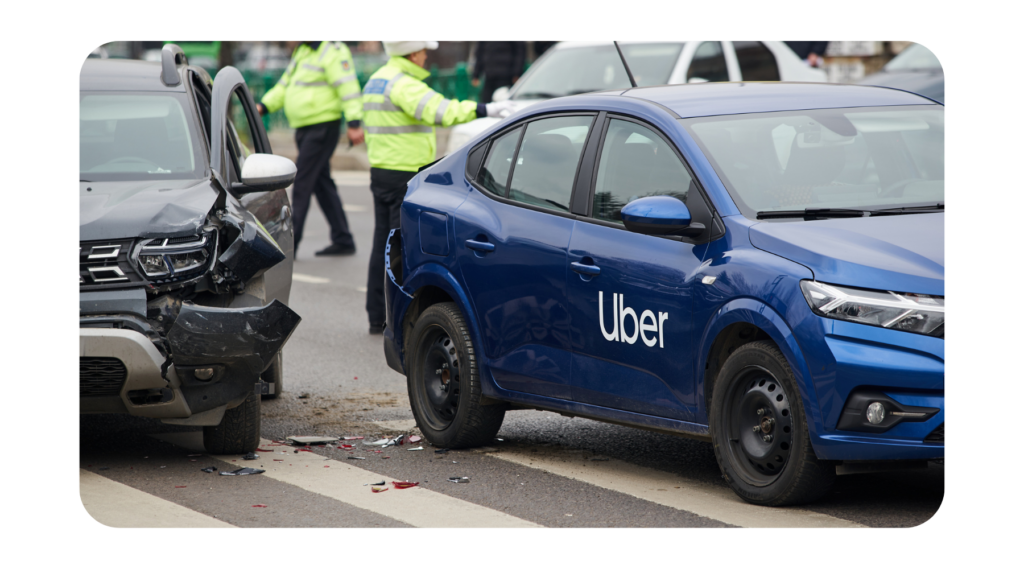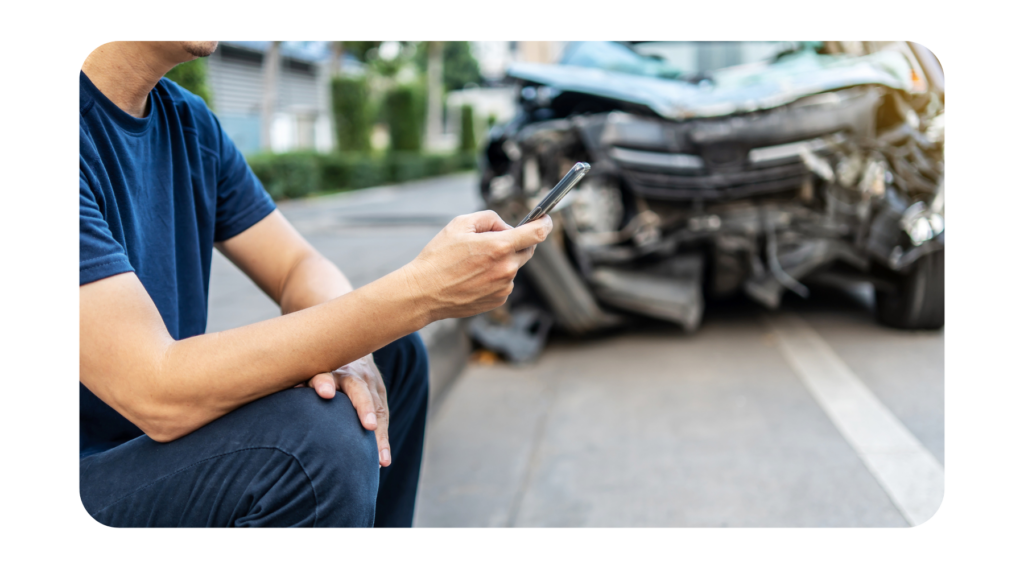What to do if I was Involved in a Crash While Driving for Uber or Lyft?

If you are a rideshare driver for Uber or Lyft and have been in a crash in the Bay Area, it’s essential to know the proper steps to take to protect your rights and ensure you receive appropriate compensation. Working with LMS Law’s auto accident attorneys who specialize in Uber and Lyft accidents can help you navigate the legal process. This comprehensive guide can help you prepare for your case.
What to Do Immediately After the Accident
- Ensure Safety and Check for Injuries: Your first priority should be safety. Check yourself, your passengers, and anyone else involved in the crash for injuries. If anyone is hurt, call 911 immediately for medical assistance. Even if there are no visible injuries, it’s wise to seek medical attention as some injuries may not be immediately apparent.
- Move to a Safe Location: If possible and safe to do so, move your vehicle to the side of the road to prevent further accidents. Turn on your hazard lights to alert other drivers of the situation.
- Contact the Authorities: Call the police to report the crash. A police report is crucial as it provides an official record of the incident, which can be helpful for insurance claims and legal proceedings.
- Document the Scene: Gather evidence by taking photos of the accident scene, including all vehicles involved, any damages, and the surrounding area. Additionally, obtain contact information from any witnesses. This documentation can be invaluable when filing an insurance claim or seeking legal recourse.
- Exchange Information: If another driver was involved in the crash, exchange contact and insurance information. Ensure you also obtain the name and contact information of any passengers in your vehicle.
How to File a Claim for a Rideshare Accident as a Driver

- Notify Uber or Lyft: Immediately inform Uber or Lyft about the crash through the app or their support channels. Both companies have protocols for handling accidents involving their drivers, and reporting the incident promptly helps ensure that you receive the necessary support.
- Contact Your Insurance Company: Report the crash to your personal auto insurance company. Since you were driving for a rideshare service at the time of the accident, your personal insurance policy might not cover all damages. It’s important to understand the extent of your coverage.
- Understand Rideshare Insurance Coverage: Rideshare companies like Uber and Lyft provide additional insurance coverage that kicks in depending on the phase of your rideshare activity. The coverage varies, but typically includes:
App Off: If the app is off and you’re not actively driving for Uber or Lyft, your personal insurance policy will generally apply.
App On, No Passenger: When the app is on, but you haven’t accepted a ride request, Uber and Lyft provide third-party liability coverage of $50,000 per person for bodily injury, $100,000 per accident for bodily injury, and $25,000 for property damage.
En Route or Passenger in the Car: When you’re en route to pick up a passenger or have a passenger in the car, Uber and Lyft’s insurance policy provides coverage up to $1 million for liability, and also includes uninsured/underinsured motorist coverage.
Understanding which insurance policy applies is crucial in determining how your claim will be handled.
Understanding Ridesharing Insurance and Potential Liability
Rideshare insurance can be complex, and understanding the nuances is essential. Typically, rideshare drivers are covered by their personal auto insurance when not actively driving for the service. When driving for Uber or Lyft, the rideshare company’s insurance provides coverage, but this coverage may have limitations. Several parties can potentially be held responsible:
- Rideshare Driver: If the crash resulted from the rideshare driver’s negligence, like speeding or running a red light, they could be held liable.
- Another Driver: If the crash was caused by another vehicle, the driver of that vehicle could be held responsible.
- Uber or Lyft: The rideshare companies could be held responsible if the crash resulted from problems related to their operations, such as insufficient driver screening or malfunctioning app features.
LMS Law’s Uber and Lyft accident attorneys can help you understand these legal distinctions.
Should I Consider Legal Help?
Navigating the complexities of insurance claims and potential legal disputes following a rideshare accident can be difficult. Here’s why seeking legal help might be beneficial:
- Expert Guidance: An experienced personal injury attorney can help you understand your rights, assess the strength of your claim, and guide you through the claims process.
- Negotiation with Insurance Companies: Insurance companies rarely, if ever, offer fair settlements. A lawyer can negotiate on your behalf to ensure you receive the compensation you deserve.
- Handling Disputes: If you face disputes over liability or coverage, a lawyer can advocate for your interests and help resolve these issues effectively.
- Maximizing Compensation: An attorney can help ensure that all damages, including medical expenses, lost wages, and pain and suffering, are considered in your claim.
Being involved in an auto crash while driving for Uber or Lyft involves navigating a complex web of insurance policies and potential legal issues. By taking the right steps immediately after the accident, understanding your insurance coverage, and considering legal assistance, you can better manage the situation and protect your rights. If you find yourself struggling with the aftermath of a rideshare accident, don’t hesitate to seek professional help to ensure a fair resolution.
Call LMS Law today at (415) 400–7000 or reach out online to arrange this free consultation. If you are unable to come to us, we will meet you at your home or in the hospital.
The above is not meant to be legal advice, and every case is different. Feel free to reach out to us at LMS Law if you have any questions. Information contained in this content and website should not be relied on as legal advice. You should consult an attorney for advice on your specific situation.
Visiting this site or relying on information gleaned from the site does not create an attorney-client relationship. The content on this website is the property of LMS Law and may not be used without the written consent thereof.







